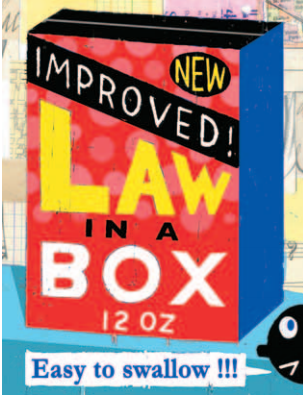Stanford Center on the Legal Profession Launched
Can associates working at large firms find a decent work/life balance? What have globalization and merger-mania done to the traditional law firm? How can the profession increase access to legal services? These are just a few of the questions that the new Stanford Center on the Legal Profession (CLP) will grapple with. Launched this September, the center will be led by Deborah L. Rhode, Ernest W. McFarland Professor of Law. CLP will support research, teaching, programs, and policy initiatives that address crucial issues facing the profession. Rhode says one of CLP’s focal points will be the lives of lawyers. Plans call for empirical research on legal workplaces. For example, one proposed project will study firms that have successful alternative workplace structures governing compensation and quality of life or different models of service such as Axiom, which has jettisoned partnerships, profit sharing, and billing requirements in exchange for giving attorneys choice about assignments in which they work from home or from client offices. “Increasing competition in legal services has had enormous effects and it’s not clear that the current business model is sustainable,” says Rhode. “We’re looking for ways to address the competitive obstacles to improving quality of life—an area that has received very little attention from academia.”
Another CLP priority is leadership development, which has been largely absent from law schools, even though many JDs go on to fill leadership positions in firms, nonprofits, and the public sector. In addition to developing interdisciplinary courses with business schools, the center intends to create continuing education offerings to help legal leaders sharpen their managerial and business skills.

Improving bar regulatory structures is another big theme, as is access to justice. “The United States has the world’s highest concentration of lawyers, but one of the least adequate systems of legal assistance,” says Rhode. The center has received its first major grant from the Sokolove Charitable Fund to address this issue. Called the Roadmap to Justice Project, its goal is to bring together leaders in the field to develop a national agenda for expanding access to legal services for low- and middle-income individuals.
To achieve its goals, the center will draw on the expertise of several SLS faculty, including Norman W. Spaulding ’97, Nelson Bowman Sweitzer and Marie B. Sweitzer Professor of Law and associate dean for curriculum, and Michele Landis Dauber, professor of law and Bernard D. Bergreen Faculty Scholar. Other potential collaborators include Stanford’s Graduate School of Business, the Rock Center for Corporate Governance, the Levin Center for Public Service and Public Interest Law, and the Stanford Center on Ethics.
“Work/life integration and professional development are the two most common career issues raised by the students and alumni I counsel,” says Susan C. Robinson, associate dean for career services. “If we can find ways to drive change in these areas, we can hopefully stem the tide of attorneys leaving the legal profession.”
